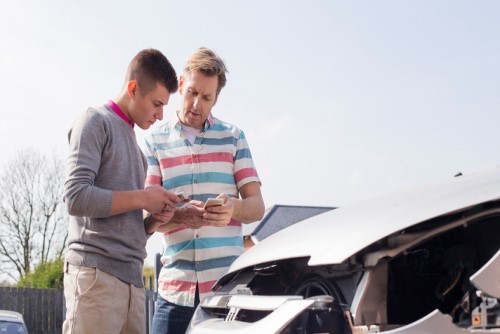Innovation in auto insurance has come a long way in the past few years, in part due to the founding and growth of “agile” and “tech-savvy” insurtech start-ups.
Competing in the car insurance markets is no easy task. They are traditionally dominated by incumbent insurers with extremely deep pockets, huge outreach and monumental advertising spends.
Many insurtech start-ups have acknowledged the power of the major carriers and chosen to partner with them in the auto insurance space, but some are opting to compete directly with these distinguished markets, using their start-up dexterity to drive change for the benefit of the consumer.
“The greatest advantage start-ups have is their agility and the absence of legacy,” explained Kyle Nakatsuji, co-founder and CEO of Clearcover, a new data-driven auto insurance start-up. “Incumbent carriers are constrained in a different way to start-ups. They have a lot of people and money to explore new avenues, but it’s much harder for them to stop doing something old [displacing their legacy] to drive innovation.
“Bigger carriers are certainly thinking about new ideas, but I think they’re constrained from moving quickly given the infrastructure and the legacy operational models they have in place. Insurtech start-ups have a real chance to take a swing in the insurance ecosystem as it stands, in terms of reinsurance support, technology and data availability.”
Insurtechs worldwide are preparing for increased security concerns with the rise of IoT (internet of things), connected and autonomous vehicles. Increased connectivity on our roads creates new opportunities for hacking and “black swan” cyber events (a surprise incident with a major impact).
Actuaries have traditionally viewed auto insurance claims as independent events, with no correlation between accidents at the same time in separate locations. But in a world of fully connected vehicles, that might not be the case. A single loss cause - like a “black swan” cyber event – could result in a 10,000-vehicle incident, which is a risk lots of incumbent insurers are underprepared for, according to Nakatsuji.
“At Clearcover, we also spend a lot of time thinking about something we call complex adaptive responsibility. We believe the most likely transport paradigm in the next 25 to 30 years is one in which people and computers share responsibility for transportation dynamically. There will be increased layers of interaction between people and robots,” he told Insurance Business.
“I think a lot of people are thinking about insuring people, and a lot of people are thinking about insuring self-driving cars – but fewer people are thinking about this complex adaptive responsibility model, which is: how do I insure the reaction between the two?”
While conjecture at present, these ideas of “black swan” auto events and complex adaptive responsibility in the network vehicle ecosystem have the possibility of becoming very real.
Insurtech start-ups have a potential advantage in this evolving risk landscape, according to Nakatsuji, in that they have the internal freedom to maximise new technology, machine learning, artificial intelligence and big data analysis to consider the possibilities of emerging threats, rather than the probabilities of risks people already know to be possible.
Related stories:
Autonomous vehicles to rattle marine insurance sector
Experts give four key ways to prepare for driverless cars


